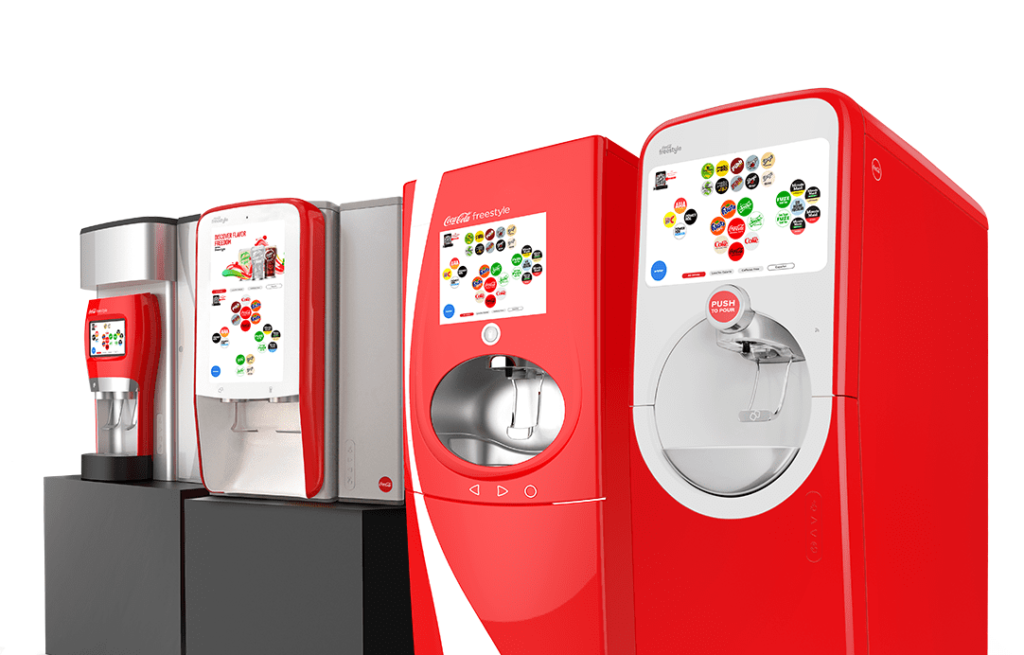Coca-Cola, an iconic brand synonymous with beverages, has embarked on a journey of innovation with its Freestyle machines. Beyond the familiar red and white cans lies a cutting-edge product that has embraced the power of product analytics. This blog post takes an in-depth look at the compelling case study of Coca-Cola’s Freestyle machines and their strategic use of product analytics. By understanding how data insights have transformed beverage dispensing and consumer experiences, we unravel the behind-the-scenes story of this remarkable advancement.
Central to the success of Coca-Cola’s Freestyle machines is their adept use of product analytics to offer personalized beverage dispensing. By analyzing data related to user preferences, popular flavor combinations, and seasonal trends, the machines create an extensive menu of beverage options. This customization empowers customers to craft their unique concoctions, ranging from classic cola mixes to exotic flavors, making each visit a tailored experience. The product analytics-driven customization not only enhances consumer satisfaction but also adds an element of novelty to the beverage dispensing process.
Coca-Cola’s Freestyle machines are a prime example of how product analytics can elevate user engagement. By monitoring usage patterns and beverage selections, Coca-Cola gains insights into consumer behavior beyond taste buds. This data enables the brand to refine marketing strategies, introduce limited-time flavors, and create loyalty programs that cater to the preferences of its diverse customer base. The result is a two-way interaction: consumers receive beverages tailored to their taste, while Coca-Cola gains a deeper understanding of its audience.
Product analytics within Coca-Cola’s Freestyle machines extend beyond consumer-facing features and enhance supply chain efficiency. By analyzing data on ingredient consumption, machine utilization, and maintenance needs, Coca-Cola gains a comprehensive overview of each machine’s performance. This data-driven approach streamlines inventory management, ensuring machines are always stocked with the right ingredients and reducing waste. The result is a seamless blend of product analytics and operational efficiency, contributing to a smoother customer experience.
Coca-Cola’s Freestyle machines leverage real-time product analytics to address maintenance needs promptly. The machines have sensors that monitor various parameters such as ingredient levels, temperature, and functionality. When anomalies are detected, the machines can proactively alert maintenance teams, ensuring prompt resolution and minimizing downtime. Fueled by-product analytics, this predictive maintenance approach guarantees that customers can consistently enjoy their beverage choices without interruptions.
Coca-Cola’s Freestyle machines testify to how product analytics can drive continuous innovation. By analyzing customer feedback and consumption trends, Coca-Cola can introduce new flavors and combinations to cater to evolving tastes. The dynamic menu offerings keep customers engaged and curious, fostering brand loyalty. This innovation-driven approach showcases how product analytics can transform a simple beverage dispenser into a platform for creativity and exploration.
Product analytics within Coca-Cola’s Freestyle machines also contribute to sustainability efforts. By analyzing ingredient consumption and waste generation, Coca-Cola can fine-tune recipes to minimize excess and ensure efficient utilization of resources. Moreover, data insights into popular flavors and consumption patterns can influence production decisions, aligning with sustainable practices and reducing the carbon footprint associated with beverage manufacturing.
Coca-Cola’s Freestyle machines are a testament to the transformative impact of product analytics on traditional industries. Through personalized beverage dispensing, enhanced user engagement, operational optimization, and innovation-driven initiatives, Coca-Cola has demonstrated how data insights can reshape consumer experiences and drive business success. The Coca-Cola Freestyle machines case study underscores the pivotal role that product analytics can play in transforming everyday products into interactive, dynamic platforms that cater to individual preferences. As we look toward the future of beverage dispensing and beyond, the integration of product analytics will undoubtedly remain a catalyst for innovation and customer satisfaction in a rapidly evolving market.

The essence of product analytics in Coca-Cola’s Freestyle machines lies in its ability to personalize beverage dispensing to an unprecedented degree. By leveraging detailed data on user preferences and popular combinations, the machines offer various options catering to diverse tastes. This high level of customization, powered by product analytics, not only delights consumers but ensures that each interaction with the machine feels unique and tailored. This strategic use of data enhances the customer experience, making it more engaging and satisfying.
Moreover, Coca-Cola’s Freestyle machines utilize product analytics to deepen user engagement. Coca-Cola can gain a nuanced understanding of consumer behavior by tracking how customers use the machines and what beverages they choose. This valuable data informs marketing strategies, allowing the introduction of new flavors and limited-time offerings that keep the menu fresh and exciting. The feedback loop created by product analytics helps Coca-Cola stay attuned to consumer preferences and adapt quickly to changing tastes.
Operational efficiency is another significant area where product analytics shine in Coca-Cola’s Freestyle machines. Coca-Cola can optimize its supply chain and reduce operational costs by analyzing data on ingredient usage, machine performance, and maintenance requirements. Real-time analytics ensure that each machine is adequately stocked and functioning correctly, crucial for maintaining customer satisfaction and minimizing downtime. The proactive maintenance enabled by product analytics reduces the likelihood of machine failures and ensures a consistent and reliable customer experience.
Innovation is at the heart of Coca-Cola’s Freestyle machines, driven by the insights gleaned from product analytics. The ability to introduce new flavors based on data trends keeps the beverage options dynamic and aligned with consumer desires. This continuous innovation keeps the brand relevant and strengthens customer loyalty by offering a diverse and evolving product range. Additionally, the insights from product analytics help Coca-Cola refine its sustainability practices, ensuring that ingredient use is efficient and waste is minimized.
In conclusion, Coca-Cola’s Freestyle machines exemplify the transformative power of product analytics. Coca-Cola has set a new standard in the beverage industry by leveraging detailed data to personalize the customer experience, optimize operations, and drive continuous innovation. This case study highlights how product analytics can turn a simple beverage dispenser into a sophisticated platform that delights consumers and drives business success. As Coca-Cola continues to harness the potential of product analytics, it paves the way for future advancements that will further enhance customer satisfaction and operational excellence in the competitive market.


